
Kenilworth
'Kenilworth' Summary
Giles Gosling, the innkeeper, had just welcomed his mischievous nephew Michael Lambourne on his return from Flanders. He invited the Cornishman, Tressilian, and other guests to drink with them. Lambourne made a wager he would obtain an introduction to a certain young lady under the steward Foster's charge at Cumnor Place, seat of the Earl of Leicester, and the Cornish stranger begged permission to accompany him. On arriving there Tressilian found that this lady was his former lady-love, Amy. He would have carried her back to her home, but she refused; and as he was leaving he quarrelled with Richard Varney, the earl's squire, and might have taken his life had not Lambourne intervened. Amy was soothed in her seclusion by costly presents from the earl, and during his next visit she pleaded that she might inform her father of their marriage, but he was afraid of Elizabeth's resentment.
Warned by his host against the squire, and having confided to him how Amy had been entrapped, Tressilian left Cumnor by night, and, after several adventures by the way, reached the residence of Sir Hugh Robsart, Amy's father, to assist him in laying his daughter's case before the queen. Returning to London, Tressilian's servant, Wayland Smith, cured the Earl of Sussex of a dangerous illness. On hearing about this from Walter Raleigh, Elizabeth at once set out to visit Leicester's rival, and it was in this way that Tressilian's petition, in Amy's behalf, was handed to her. The queen was agitated to learn of this secret marriage. Varney was accordingly summoned to the royal presence, but he boldly declared that Amy was his wife, and Leicester was restored to the queen's favour.
Tressilian's servant then gained access to the secret countess Amy as a pedlar, and, having hinted that Elizabeth would shortly marry the earl, sold her a cure for the heartache, warning her attendant Janet at the same time that there might be an attempt to poison her mistress. Meanwhile, Leicester was preparing to entertain the queen at Kenilworth, where she had commanded that Amy should be introduced to her, and Varney was, accordingly, despatched with a letter begging the countess to appear at the revels pretending to be Varney's bride. Having indignantly refused to do so, and having recovered from the effects of a cordial which had been prepared for her by the astrologer Alasco, she escaped, with the help of her maid, from Cumnor, and started for Kenilworth, escorted by Wayland Smith.
Travelling thither as brother and sister, they joined a party of mummers, and then, to avoid the crowd of people thronging the principal approaches, proceeded by circuitous by-paths to the castle. Having, with Dickie Sludge's help, passed into the courtyard, they were shown into a room, where Amy was waiting while her attendant carried a note to the earl, when she was startled by the entrance of Tressilian, whom she entreated not to interfere until after the expiration of twenty-four hours. On entering the park, Elizabeth was received by her favourite attended by a numerous cavalcade bearing waxen torches, and a variety of entertainments followed. During the evening she enquired for Varney's wife, and was told she was too ill to be present. Tressilian offered to lose his head if within twenty-four hours he did not prove the statement to be false. Nevertheless, the ostensible bridegroom was knighted by the queen.
Receiving no reply to her note, which Wayland had lost, Amy found her way the next morning to a grotto in the gardens, where she was discovered by Elizabeth, who had just told her host that "she must be the wife and mother of England alone." Falling on her knees the countess besought protection against Varney, who she declared was not her husband, and added that the Earl of Leicester knew all. The earl was instantly summoned to the royal presence, and would have been committed to the Tower, had not Amy recalled her words, when she was consigned to Lord Hunsdon's care as bereft of her reason, Varney coming forward and pretending that she had just escaped from a special treatment for her madness. Leicester insisted on an interview with her, when she implored him to confess their marriage to Elizabeth, and then, with a broken heart, told him that she would not long darken his brighter prospects. Varney, however, succeeded in persuading him that Amy had acted in connivance with Tressilian, and in obtaining medical sanction for her custody as mentally disordered, asking only for the earl's signet-ring as his authority. The next day a duel between Tressilian and the earl was interrupted by Dickie, who produced the countess's note, and, convinced of her innocence, Leicester confessed that she was his wife. With the queen's permission he at once deputed his rival and Sir Walter Raleigh to proceed to Cumnor, whither he had already despatched Lambourne, to stay his squire's further proceedings.
Varney, however, had shot the messenger on receiving his instructions, and had caused Amy to be conducted by Foster to an apartment reached by a long flight of stairs and a narrow wooden bridge. The following evening the tread of a horse was heard in the courtyard, and a whistle like the earl's signal, upon which she rushed from the room, and the instant she stepped on the bridge, it parted in the middle, and she fell to her death. Her murderer poisoned himself, and the skeleton of his accomplice was found, many years afterwards, in a cell where he secreted his money. The news of the countess's fate put an end to the revels at Kenilworth: Leicester retired for a time from Court, and Sir Hugh Robsart, who died very soon after his daughter, settled his estate on Tressilian. Leicester pressed for an impartial inquiry. Though the jury found that Amy's death was an accident (concluding that Lady Dudley, staying alone "in a certain chamber", had fallen down the adjoining stairs, sustaining two head injuries and breaking her neck), it was widely suspected that Leicester had arranged his wife's death to be able to marry the Queen.
Giles Gosling, the innkeeper, had just welcomed his mischievous nephew Michael Lambourne on his return from Flanders. He invited the Cornishman, Tressilian, and other guests to drink with them. Lambourne made a wager he would obtain an introduction to a certain young lady under the steward Foster's charge at Cumnor Place, seat of the Earl of Leicester, and the Cornish stranger begged permission to accompany him. On arriving there Tressilian found that this lady was his former lady-love, Amy. He would have carried her back to her home, but she refused; and as he was leaving he quarrelled with Richard Varney, the earl's squire, and might have taken his life had not Lambourne intervened. Amy was soothed in her seclusion by costly presents from the earl, and during his next visit she pleaded that she might inform her father of their marriage, but he was afraid of Elizabeth's resentment.
Kenilworth Castle's 16th-century gatehouse, built by Robert Dudley
Warned by his host against the squire, and having confided to him how Amy had been entrapped, Tressilian left Cumnor by night, and, after several adventures by the way, reached the residence of Sir Hugh Robsart, Amy's father, to assist him in laying his daughter's case before the queen. Returning to London, Tressilian's servant, Wayland Smith, cured the Earl of Sussex of a dangerous illness. On hearing about this from Walter Raleigh, Elizabeth at once set out to visit Leicester's rival, and it was in this way that Tressilian's petition, in Amy's behalf, was handed to her. The queen was agitated to learn of this secret marriage. Varney was accordingly summoned to the royal presence, but he boldly declared that Amy was his wife, and Leicester was restored to the queen's favour.
Tressilian's servant then gained access to the secret countess Amy as a pedlar, and, having hinted that Elizabeth would shortly marry the earl, sold her a cure for the heartache, warning her attendant Janet at the same time that there might be an attempt to poison her mistress. Meanwhile, Leicester was preparing to entertain the queen at Kenilworth, where she had commanded that Amy should be introduced to her, and Varney was, accordingly, despatched with a letter begging the countess to appear at the revels pretending to be Varney's bride. Having indignantly refused to do so, and having recovered from the effects of a cordial which had been prepared for her by the astrologer Alasco, she escaped, with the help of her maid, from Cumnor, and started for Kenilworth, escorted by Wayland Smith.
Travelling thither as brother and sister, they joined a party of mummers, and then, to avoid the crowd of people thronging the principal approaches, proceeded by circuitous by-paths to the castle. Having, with Dickie Sludge's help, passed into the courtyard, they were shown into a room, where Amy was waiting while her attendant carried a note to the earl, when she was startled by the entrance of Tressilian, whom she entreated not to interfere until after the expiration of twenty-four hours. On entering the park, Elizabeth was received by her favourite attended by a numerous cavalcade bearing waxen torches, and a variety of entertainments followed. During the evening she enquired for Varney's wife, and was told she was too ill to be present. Tressilian offered to lose his head if within twenty-four hours he did not prove the statement to be false. Nevertheless, the ostensible bridegroom was knighted by the queen.
The Elizabethan Gardens at Kenilworth
Receiving no reply to her note, which Wayland had lost, Amy found her way the next morning to a grotto in the gardens, where she was discovered by Elizabeth, who had just told her host that "she must be the wife and mother of England alone." Falling on her knees the countess besought protection against Varney, who she declared was not her husband, and added that the Earl of Leicester knew all. The earl was instantly summoned to the royal presence, and would have been committed to the Tower, had not Amy recalled her words, when she was consigned to Lord Hunsdon's care as bereft of her reason, Varney coming forward and pretending that she had just escaped from a special treatment for her madness. Leicester insisted on an interview with her, when she implored him to confess their marriage to Elizabeth, and then, with a broken heart, told him that she would not long darken his brighter prospects. Varney, however, succeeded in persuading him that Amy had acted in connivance with Tressilian, and in obtaining medical sanction for her custody as mentally disordered, asking only for the earl's signet-ring as his authority. The next day a duel between Tressilian and the earl was interrupted by Dickie, who produced the countess's note, and, convinced of her innocence, Leicester confessed that she was his wife. With the queen's permission he at once deputed his rival and Sir Walter Raleigh to proceed to Cumnor, whither he had already despatched Lambourne, to stay his squire's further proceedings.
Varney, however, had shot the messenger on receiving his instructions, and had caused Amy to be conducted by Foster to an apartment reached by a long flight of stairs and a narrow wooden bridge. The following evening the tread of a horse was heard in the courtyard, and a whistle like the earl's signal, upon which she rushed from the room, and the instant she stepped on the bridge, it parted in the middle, and she fell to her death. Her murderer poisoned himself, and the skeleton of his accomplice was found, many years afterwards, in a cell where he secreted his money. The news of the countess's fate put an end to the revels at Kenilworth: Leicester retired for a time from Court, and Sir Hugh Robsart, who died very soon after his daughter, settled his estate on Tressilian. Leicester pressed for an impartial inquiry. Though the jury found that Amy's death was an accident (concluding that Lady Dudley, staying alone "in a certain chamber", had fallen down the adjoining stairs, sustaining two head injuries and breaking her neck), it was widely suspected that Leicester had arranged his wife's death to be able to marry the Queen.
Book Details
Language
EnglishOriginal Language
EnglishPublished In
1821Authors
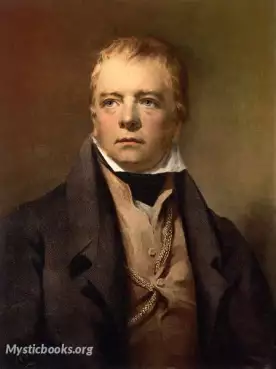
Sir Walter Scott
Scotland
Sir Walter Scott, 1st Baronet was a Scottish historical novelist, poet, playwright, and historian. Many of his works remain classics of both English-language literature and Scottish literature. F...
Books by Sir Walter ScottDownload eBooks
Listen/Download Audiobook
- Select Speed
Related books

Lucia in London by E. F. Benson
The third book in the Mapp and Lucia series follows the adventures of Mrs. Emmeline Lucas (Lucia), a provincial snob and social climber, who comes int...

The Little Mermaid by Hans Christian Andersen
"The Little Mermaid" is a Danish literary fairy tale written by the Danish author Hans Christian Andersen. The story follows the journey of a young me...

Mystery of the 'Ocean Star' - A Collection of Maritime Sketches by William Clark Russell
This collection of short stories transports readers to the era of grand sea voyages, where mystery and romance intertwine amidst the vast expanse of t...
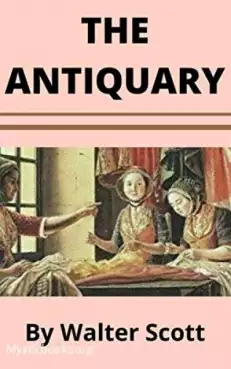
The Antiquary by Sir Walter Scott
The Antiquary, the third of the Waverley novels by Walter Scott, centres on the character of an antiquary: an amateur historian, archaeologist and col...
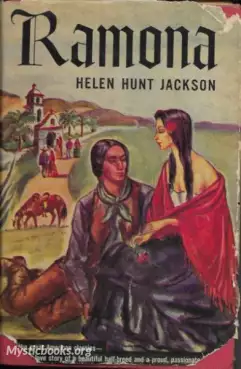
Ramona by Helen Hunt Jackson
Ramona is a American novel written by Helen Hunt Jackson. Set in Southern California after the Mexican–American War, it portrays the life of a mixed-r...
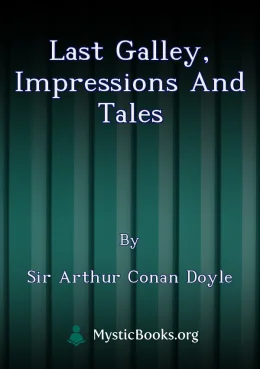
Last Galley, Impressions and Tales by Sir Arthur Conan Doyle
This book presents a unique blend of historical insights and fictional narratives. The first half consists of short sketches portraying significant mo...
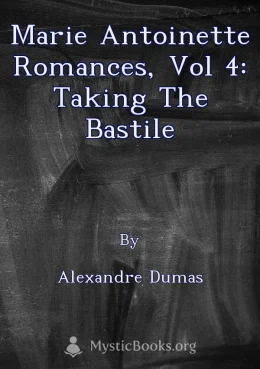
Marie Antoinette Romances, Vol 4: Taking the Bastile by Alexandre Dumas
This fourth volume in the 'Marie Antoinette Romances' series delves into the historical events preceding and culminating in the storming of the Bastil...

Götz von Berlichingen mit der eisernen Hand - Ein Schauspiel by Johann Wolfgang von Goethe
Götz von Berlichingen mit der eisernen Hand is a historical play by Johann Wolfgang von Goethe, exploring the life of the real-life knight Götz von Be...

コーカサスの禿鷹 (Caucasus no Hagetaka) by Yoshio Toyoshima
The story narrates the journey of a determined vulture who sets out to discover the tallest mountain in the Caucasus region. Driven by an unwavering a...
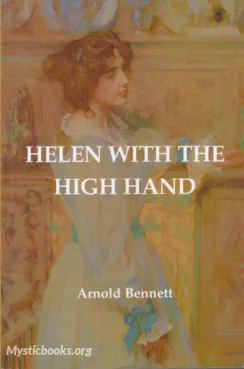
Helen with the High Hand by Arnold Bennett
It follows the story of Helen Rathbone, a confident and independent young woman living in Edwardian England. In this coming-of-age tale, Helen is fac...
Reviews for Kenilworth
No reviews posted or approved, yet...